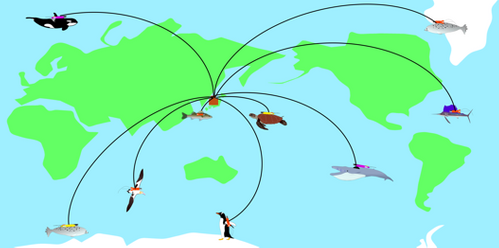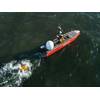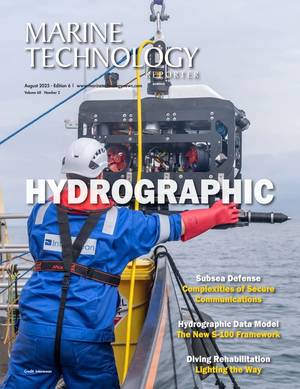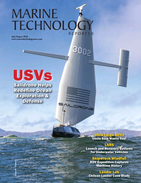Internet of Animals Could Help Track Human Impact
Sensors attached to animals could gather valuable data to track and mitigate the effects of human activity on marine life, according to a paper by researchers at Japan’s Kobe University.
The review paper emphasizes the importance of integrating data from various sources and advocates for an “Internet of Animals” based on open access and shared standards.
Kobe University animal ecologist Iwata Takashi says: “There is a wealth of oceanographic data from research vessels, drifting buoys and satellites. But due to technological and economic constraints, there are many observation gaps and some areas are inaccessible to humans, such as under sea ice or during harsh weather.”
In addition, it is often difficult to understand the influence different factors have on individual animals, thus making the development of targeted policies difficult.
Biologging, which refers to attaching sensors, cameras or other small devices to wild animals, has traditionally been used to learn about animal behavior and distribution, but more recently it has also become useful for studying the environmental conditions the animals encounter.
In the journal Water Biology and Security, Iwata’s team published a review summarizing the current state of biologging, describing what insights such data has provided so far, including more accurate typhoon forecasts, the difference in how turtle species react to plastic waste, illegal fishing and how offshore wind farms can become more bird friendly.
Iwata says: “This review showed that while biologging alone is insufficient, it can fill in the gaps in existing knowledge. It provides a new type of data that differs from the wide-area environmental information obtained from earth observation satellites and other sources to tackle a broad range of environmental issues.”
Iwata explains, “We try to minimize the impact this has on the animals by keeping the overall weight of the devices to less than 3% of the animal’s body weight, or even less than 1% for larger animals, and many researchers keep developing smaller and smaller devices.”
In their paper, Iwata and his coauthor from Waseda University write, “The full potential of biologging can only be realized thorough increased global collaboration and data sharing, enabling the integration of data across species, regions, and environmental contexts.” The main challenges for this are global data availability and the compatibility of different recording standards, which is an area where the Japanese research team advocates for increased collaboration between researchers and data collection platforms.















 August 2025
August 2025



